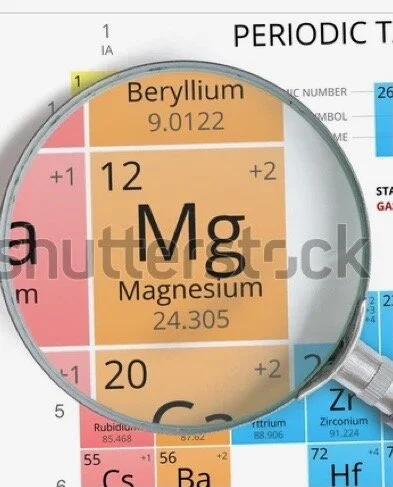Did you know that more than 50% of Americans are magnesium deficient? More than 60% of US adults do not consume the average requirement of magnesium in their diet? (1)
Magnesium is a cofactor of more than 350 enzymes systems involving energy production, muscle and nerve function, glucose control and blood pressure regulation to name a few. Because of magnesium’s many functions within the body, it plays a major role in disease prevention and overall health. Low levels of magnesium have been associated with a number of chronic diseases including migraine headaches, Alzheimer’s disease, asthma, hypertension, depression, cardiovascular disease, anxiety, and type 2 diabetes mellitus.
WHAT FORM OF MAGNESIUM SHOULD I TAKE?
Here is a break down the different types of magnesium you can take supplementally and for what conditions.
MAGNESIUM OXIDE
Magnesium oxide is the most common form of magnesium sold in pharmacies, but it is non-chelated and possesses a poor absorption rate. Only about 4% is absorbed. It can be useful for constipation issues and is the form found in Milk of Magnesia.
MAGNESIUM CITRATE
Magnesium citrate is magnesium combined with citric acid making it highly absorbable and inexpensive. It has a gentle laxative effect and works by pulling water into the intestines making the stool softer and easier to pass. In addition, it has been shown to be helpful for those that have trouble falling asleep or staying asleep.
MAGNESIUM GLYCINATE
Magnesium glycinate is one of the most bioavailable and absorbable forms of magnesium and least likely to induce diarrhea. It is magnesium combined with glycine. Glycine has a calming effect due to its ability to increase the neurotransmitter GABA. It is my go-to magnesium for relieving anxiety, reducing muscle pain, cardiovascular health and promoting sleep. It is the safest option for correcting a long-term deficiency.
MAGNESIUM MALATE
Magnesium malate is a combination of malic acid and magnesium. Malic acid is a vital component of enzymes that play a key role in ATP synthesis and energy production. Magnesium malate is highly absorbable and can be very beneficial for patients experiencing low energy and fatigue, such as fibromyalgia and chronic fatigue syndrome.
MAGNESIUM THREONATE
Magnesium threonate is magnesium combined with threonic acid (a vitamin C metabolite). Interestingly, this form of magnesium can be transported across lipid membranes and is the best form for crossing the blood-brain barrier. Magnesium threonate is effective for cognitive and mental health conditions, like brain fog, mood disorders, migraines, and cognitive decline.
MAGNESIUM CITRAMATE
Magnesium citramate is a combination of magnesium citrate and magnesium malate. If you are someone experiencing low energy, muscle aches, and constipation this may be the best form for you.
HOW MUCH MAGNESIUM SHOULD I BE TAKING?
The recommended daily allowance is as follows:
Children: 80-150mg/day
Adolescents: 200-400 mg/day
Adults: 300-450 mg/day
CAN I TEST MY MAGNESIUM LEVEL?
Testing for magnesium deficiency has traditionally been performed using serum levels, however, since only 1% of magnesium in the body is detected the blood, this is not the most accurate or reliable method of testing. It is a reliable test for severe deficiencies only. (2)
Magnesium is primarily stored in the bone, muscle and soft tissue. However, doing muscle or bone biopsies to test magnesium levels are too invasive and costly. RBC magnesium levels may be the most reliable tool for identifying magnesium level status in patients but many conventional medical doctors will not run this specific level. (3)
ABOUT THE AUTHOR
Since 2005, Dr. Fey has helped women, men, and children find real solutions to their health concerns. She truly believes that giving the proper care and nutrients your body has an amazing ability to heal. She is committed to finding the root cause of illness by utilizing a whole body approach not just focusing solely on presenting symptoms. With her scientific background, Dr. Fey uses science based natural approaches to treating disease.
Dr. Amanda Fey is the owner and practicing Naturopathic Doctor at Complementary Medicine & Healing Arts, the Southern Tiers Center for Natural Healthcare located in the Binghamton NY area. The office website is www.naturallywell.us. Dr. Fey is currently offering telemedicine for patients all across the US. To contact the office, call 607-729-0591 or email cmhahealth@gmail.com.
REFERENCES
https://www.ncbi.nlm.nih.gov/pmc/articles/PMC3650510/
https://pubmed.ncbi.nlm.nih.gov/18598586/
https://pubmed.ncbi.nlm.nih.gov/30828068/
